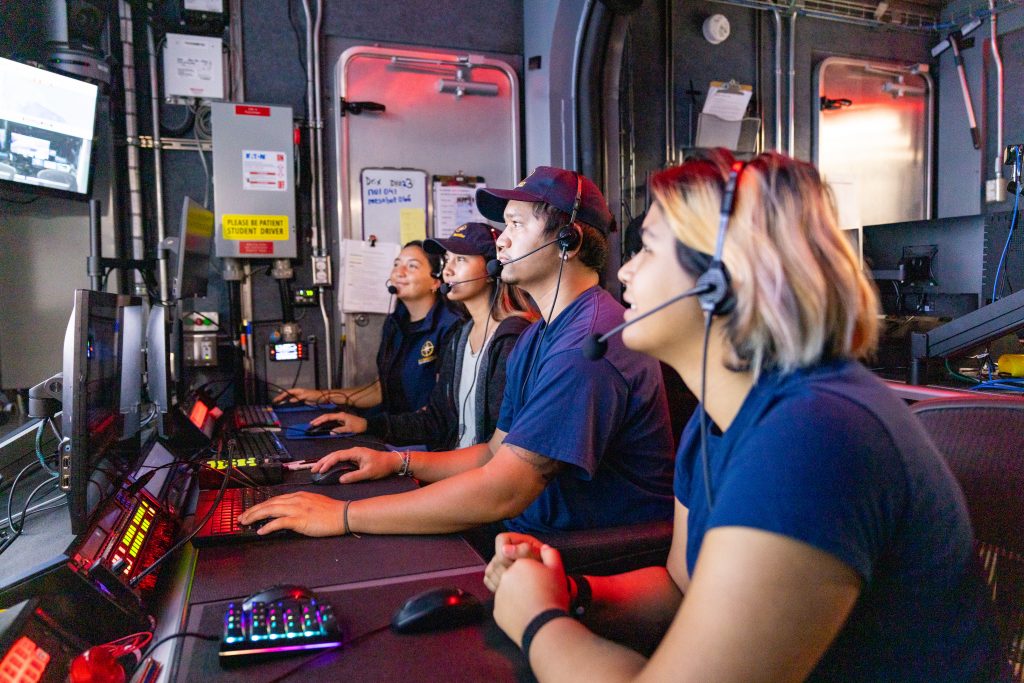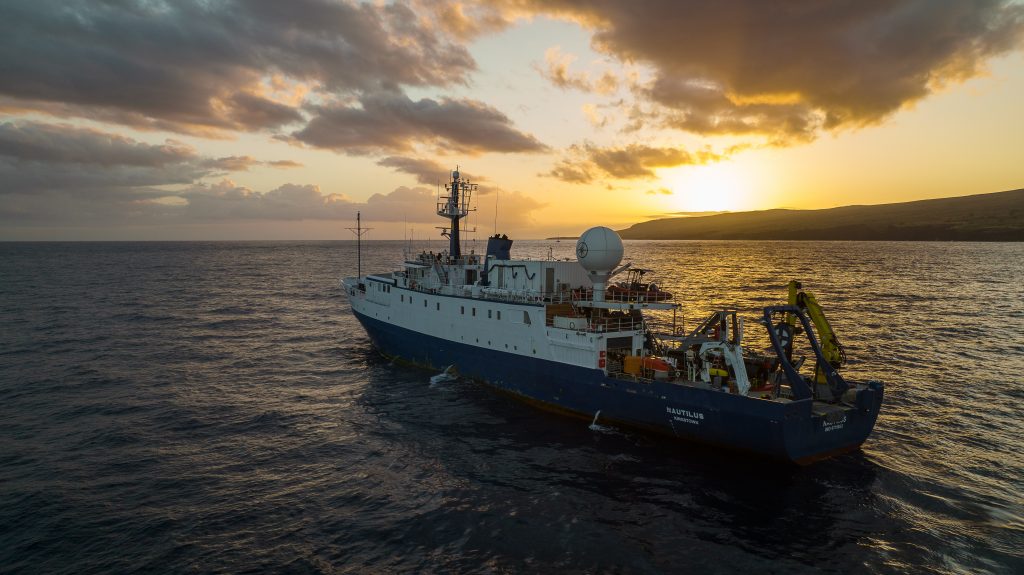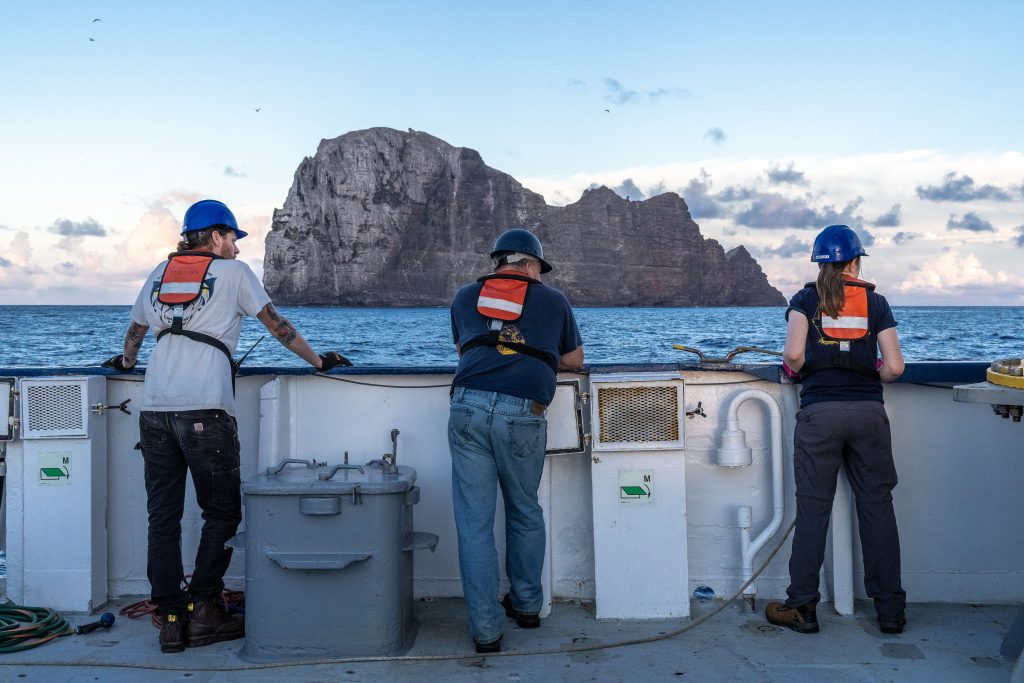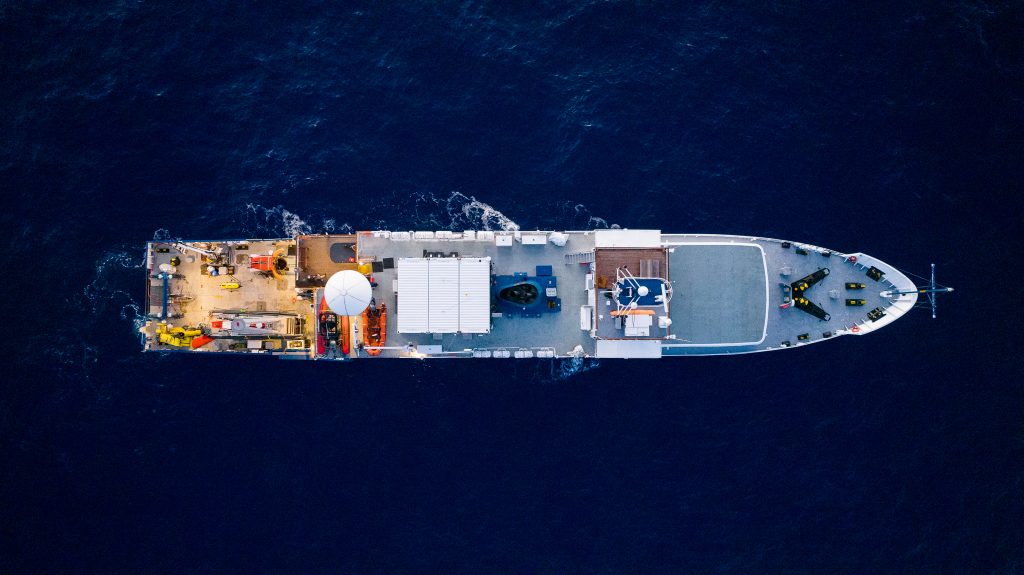Molokaʻi teacher selected to explore deep ocean aboard Nautilus vessel
Gandharva Mahina Hou Ross from O Hina I Ka Malama Hawaiian Language Immersion Program at Molokaʻi High School has been selected by Ocean Exploration Trust (OET) as a 2024 Science Communication Fellow. Ross, who originally hails from Waialua Manaʻe Molokaʻi, will sail aboard OET’s exploration vessel Nautilus this summer as part of a deep ocean exploration team.
Mahina Hou was selected from a worldwide pool of applicants and will join a cohort of 13 fellows from schools, science centers, and nonprofit organizations across the Pacific and North America. They will join OET in July as they head to the Pacific Remote Island Marine National Monument near Jarvis Island, where they will use remotely operated vehicles to explore deep-sea habitats mapped just at the end of 2023 for 26 days.
“He mea koʻi koʻi no mākou ke kau ana i luna o ka moku Nautilus e ʻimi ʻike e pili ana i ka papakū o ka moana i hiki ke kaʻana like me nā poʻe o Hawaiʻi a me nā poʻe a puni ka honua,” said Gandharva Mahina Hou Ross. “It is very important to be able to be on board the Nautilus to investigate the ocean floor and share this information with the people of Hawaiʻi as well as worldwide.”
While at sea, Mahina Hou will have the opportunity to connect live with learners across Molokaʻi and Hawaiʻi. Everyone can engage with these educators via NautilusLive.org, a 24-hour live-streaming web portal bringing expeditions from the field to explorers on shore via telepresence technology and social media. Mahina Hou will participate in live broadcast dive commentary and question-and-answer sessions through the Nautilus Live website while aboard the ship; he will also engage in events and activities upon their return. Schools and community groups can also schedule free, live one-on-one Q&A sessions with explorers on the ship beginning in May.
“Science Communication Fellows work alongside scientists and engineers and help to convey the excitement of the ocean exploration experience across the NautilusLive live stream, social media, and outreach directly with classrooms. We are proud to elevate role models for learners, focusing on reaching communities historically marginalized from science, technology, engineering, arts, mathematics, and ocean fields, ” said Megan Cook, OET’s Director of Education and Outreach.
The OET Science Communication Fellowship brings formal and informal educators onboard Nautilus to engage students and the public in the wonders of ocean exploration while sharing discoveries from the 2024 mission and aspects of daily life aboard a working exploration vessel. Through the year, Fellows grow their science communication skills, attend in-person professional development training together with worldwide Fellows, and spend several weeks as a crucial part of the team aboard Nautilus. Fellows bring ocean exploration back to their home communities by incorporating their experience into classroom lesson plans, community presentation events, and informal educational opportunities.
Ocean Exploration Trust, a nonprofit founded by Dr. Robert Ballard, operates with a mission to explore the unknown parts of the ocean, seeking out discoveries in geology, biology, and hydrography while pushing the boundaries of STEAM education and technological innovation. OET promotes science, technology, engineering, art, and mathematics (STEAM) education worldwide using the excitement of exploration and innovation to inspire the next generation of scientists and engineers.
“One of the major goals of our Nautilus Exploration Program is to motivate the next generation of explorers,” said Allison Fundis, OET’s Chief Operating Officer. “We are very excited to provide educators with the direct experience in ocean exploration while allowing them the opportunity to share that experience with their peers around the world.”
OET’s nine 2024 expeditions in Hawaiʻi, American Samoa, US Pacific Remote Islands, Palau, and Canada are aimed at contributing to the ocean being better understood by supporting international scientific and US governmental priorities, particularly understanding ocean changes, sharing that knowledge with others, and contributing discoveries and data to inform future conservation and management decisions.
















_1768613517521.webp)






